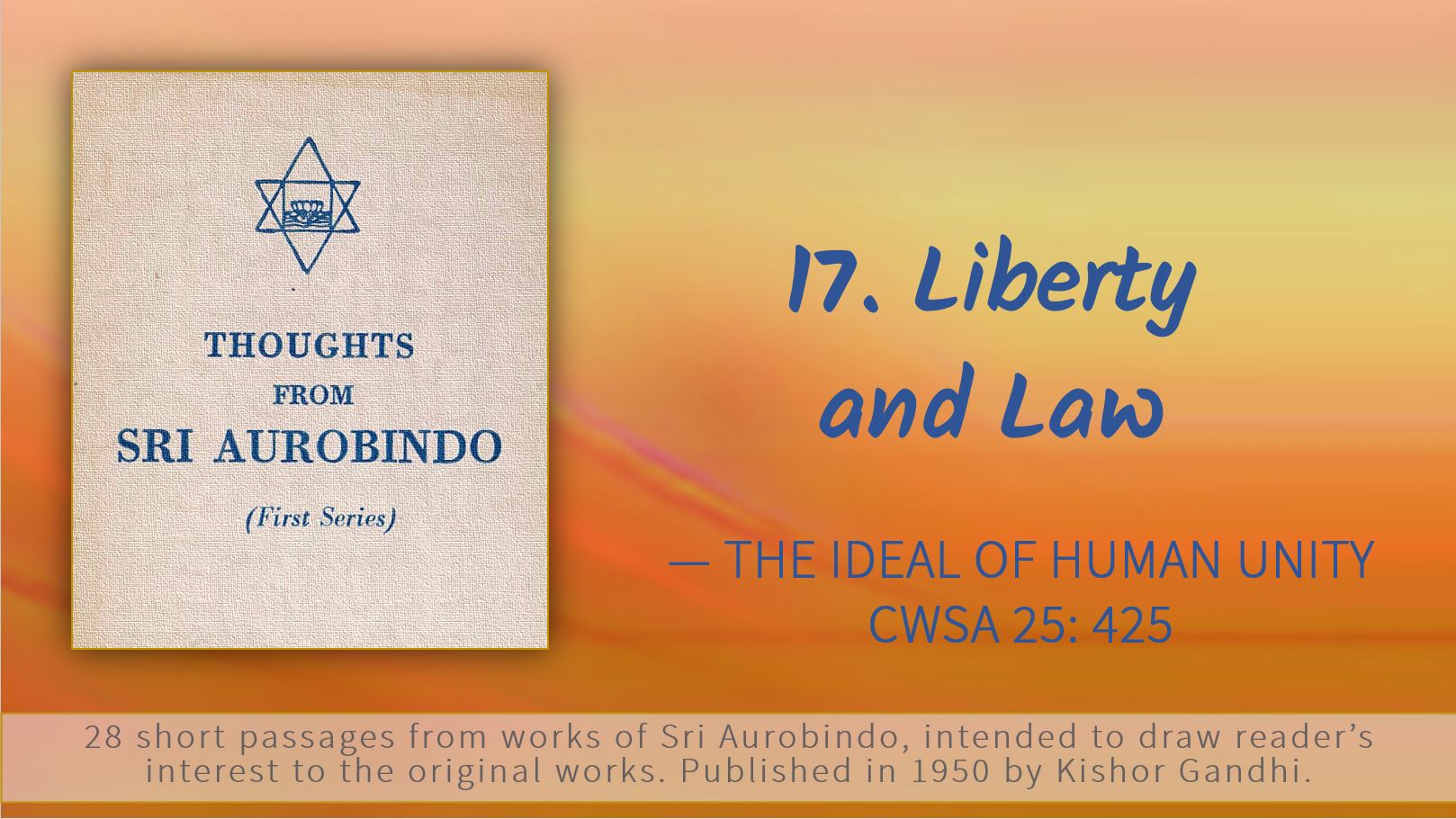
Democracy is by no means a sure preservative of liberty; on the contrary, we see today the democratic system of government march steadily towards such an organised annihilation of individual liberty as could not have been dreamed of in the old aristocratic and monarchical systems. It may be that from the more violent and brutal forms of despotic oppression which were associated with those systems, democracy has indeed delivered those nations which have been fortunate enough to achieve liberal forms of government, and that is no doubt a great gain. It revives now only in periods of revolution and of excitement, often in the forms of mob tyranny or a savage revolutionary or reactionary repression. But there is a deprivation of liberty which is more respectable in appearance, more subtle and systematised, more mild in its method because it has a greater force at its back, but for that very reason more effective and pervading. The tyranny of the majority has become a familiar phrase and its deadening effects have been depicted with a great force of resentment by certain of the modern intellectuals:[1] but what the future promises us is something more formidable still, the tyranny of the whole, of the self-hypnotised mass over its constituent groups and units.[2]
This is a very remarkable development, the more so, as in the origins of the democratic movement individual freedom was the ideal which it set in front both in ancient and modern times. The Greeks associated democracy with two main ideas, first, an effective and personal share by each citizen in the actual government, legislation, administration of the community, secondly a great freedom of individual temperament and action. But neither of these characteristics can flourish in the modern type of democracy, although in the United States of America there was at one time a tendency to a certain extent in this direction. In large States, the personal share of each citizen in the government cannot be effective; he can only have an equal share — illusory for the individual although effective in the mass — in the periodical choice of his legislators and administrators. Even if these have not practically to be elected from a class which is not the whole or even the majority of the community, at present almost everywhere the middle class, still these legislators and administrators do not really represent their electors. The Power they represent is another, a formless and bodiless entity, which has taken the place of monarch and aristocracy, that impersonal group-being which assumes some sort of outward form and body and conscious action in the huge mechanism of the modern State. Against this power the individual is much more helpless than he was against old oppressions. When he feels its pressure grinding him into its uniform moulds, he has no resource except either an impotent anarchism or else a retreat, still to some extent possible, into the freedom of his soul or the freedom of his intellectual being.
— The Ideal of Human Unity
The Human Cycle, The Ideal of Human Unity CWSA 25: 508
[1] Ibsen in his drama, “An Enemy of the People.”
[2] There was first seen the drastic beginning of this phenomenon in Fascist Italy and Soviet Russia. At the time of writing, this development could be seen only in speculative prevision. It assumed afterwards the proportions of a growing fact and we can now see its full and formidable body.



